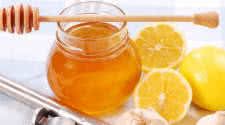Cold Remedies - Non Prescription & Common Supplement Cold Remedies

Taking Care of your Body in All Aspects is Essential for Overall Health
So-called nonprescription cold remedies found in drugstores aren't really remedies at all, but simply address the cold and
flu symptoms. Nonetheless, when used correctly, they can help make your recovery a little less miserable.
Remember that over-the-counter and herbal nostrums are still medicines and should be treated with care. Don't take too much,
in general don't take them if you're pregnant or nursing, and check with your doctor if you're already on medications or
have a cardiovascular or other health condition. Some energy and weight-loss products contain the same ingredients (often
ephedrine or derivatives) as cold and asthma medications, so double-check to make sure you don't double or triple up on
strong stimulants.
Antihistamines: These help dry mucous membranes. They also tend to make people drowsy, so they're best used at bedtime.
Decongestants: These open up nasal passages so you can breathe more easily. If decongestants make you jittery, a spray
decongestant may be a better choice.
Pain reliever/fever reducer: Aspirin, ibuprofen, acetaminophen and naproxen sodium (as in Aleve) are common over-the-counter
medications that help relieve body aches and sinus pain, and reduce fever. Don't give children or teens aspirin for cold or
flu symptoms before consulting a doctor because of the rare but serious risk of Reye's syndrome.
Herbals: The herbal remedies Echinacea and astragalus have both been shown to boost certain elements of the immune system,
although clinical research hasn't shown that they actually reduce cold symptoms.
Echinacea is one of the most popular cold-season herbals. You can take it at the first sign of a cold coming on, or as a
preventive during cold season, but don't use it continuously. After 6-8 weeks of use, take a break for 1-4 weeks. The usual
dose is 400-1,200 mg a day, taken with meals. Don't use this herb if you're allergic to daisies.
With astragalus, one dropperful day is the usual dose. Don't take herb if you have a fever.
Green tea contains compounds that have antiviral properties in the test tube, but as yet, no evidence indicates that drinking
green tea decreases the duration or severity of cold symptoms, and the caffeine makes some people restless and jittery. A
warm cup of chamomile tea may be your best bet; it has a relaxing effect, and may help relieve nasal congestion and soothe
a sore throat.
Zinc: One clinical study showed that zinc lozenges reduced the duration of colds by an average of 40%, though subsequent
research hasn't duplicated these findings. Zinc lozenges might reduce the duration of a cold, but at the price of a terrible
aftertaste and a possible upset stomach. Excessive zinc supplementation can also cause a copper deficiency over time, so zinc
lozenges shouldn't be used for more than a week or two. Follow package directions regarding maximum daily dosages.
Vitamin C: Nobel laureate Linus Pauling advocated megadoses of Vitamin C to prevent colds back in the 1970s, yet later
research indicated that high doses of Vitamin C won't prevent colds at all. Moderate doses (2-3 grams per day), however,
have been shown to help reduce the severity of cold symptoms.
Chicken soup: This is still one of the best ways to help relieve the symptoms of the common cold. It may not contain any magic
anti-viral compounds, but hot liquids can soothe mucous membranes and relieve congestion. Hot, spicy foods are also a good bet.
According to Ron Eccles, DSc, director of the Common Cold Centre at Cardiff University in Wales, the spice tends to increase
mucus production, which helps soothe the throat, and trap viruses and bacteria. Don't forget the garlic, another herb with
healing properties.
Glutamine: This amino acid not only helps preserve muscle but also supports your immune system. A common dose is 5-20 grams
daily.
Homeopathic remedies: One often prescribed for colds and flu is oscillococcinum. Michele lqbal, DHMS, PhD, a private
practitioner of homeopathy in West Hollywood, California, suggests that if oscillococcinum is taken just as the aching or sore
throat is beginning, it can completely offset the progress of the cold or flu virus.
Yet Andrew Vickers, PhD, an independent research consultant at the Royal London Homeopathic Hospital, isn't convinced. He says
some evidence shows that oscillococcinum can treat flu, but it doesn't rise to the standards necessary to convince Western
scientists of its value.